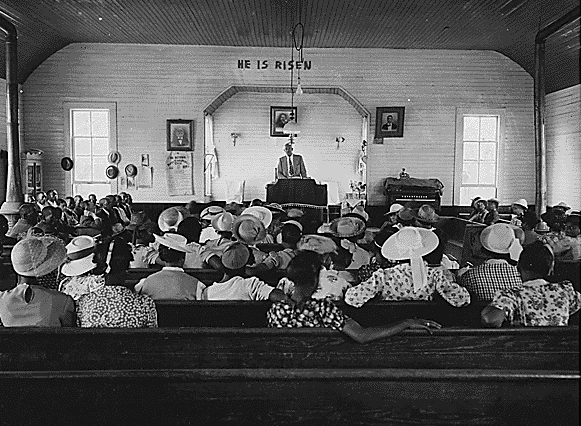Origin
Characteristics
Social Implications
The church life of the slave and the Europeans differed drastically, and the greatest way to distinguish the two is through their music. European hymns were more subtle and solemn while the negro spiritual allowed them to rejoice in celebration for the gift of Christ. Believing in Christ gave slaves the hope that their hard days would soon be over.

Important Performers
During the time of spirituals choirs where a growing thing, one famous choir for negro spirituals is the Fisk University Jubilee Choir. Some individual artist and composers consist of Harry Burleigh the director of the Jubilee Choir, Charles Tindley, John Johnson and many more.
Commodifications
As done with the folk songs, lyrics were stolen and placed in a book to be sold for commission; however, slaves were not giving any portion of the profit made from these books.
Influences of Future Genres
This genre was most influential on modern day Gospel in African American churches. The polyrhythms and shouts are still encompassed in the gospel genre and help create this new spiritual genre. The songs are not the same lyrics of the slave, yet they stem from bible verses and messages and is sung as a way to praise and rejoice in the word of the lord.
Opinions
In conclusion, folk music is where it all began, introducing the elements of music for many genres to come including the negro spiritual. Spirituals allowed us to add our own personal beliefs and value to music such as religion. The double entendre helped slaves come a long, knowing that God would never put them in something that they could not handle and that they could seek refuge in their religion. The elements of this genre still persist, the main difference between spirituals and gospels is the lyrics. Still differing from European hymns, spirituals allowed slaves to put meaning and life into a song.

